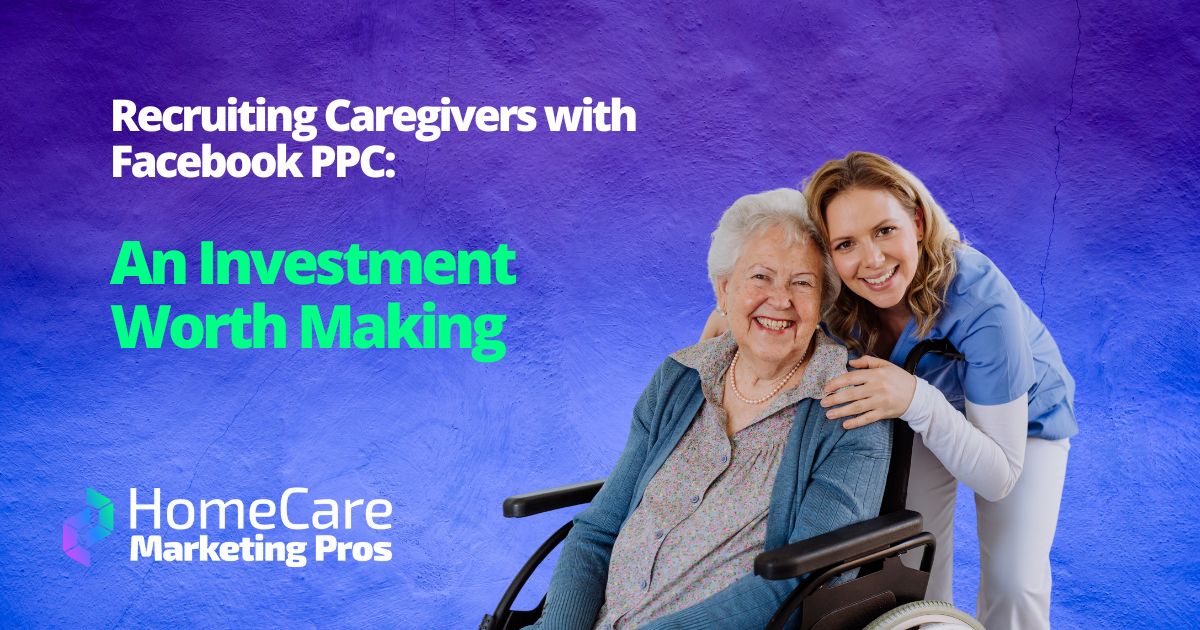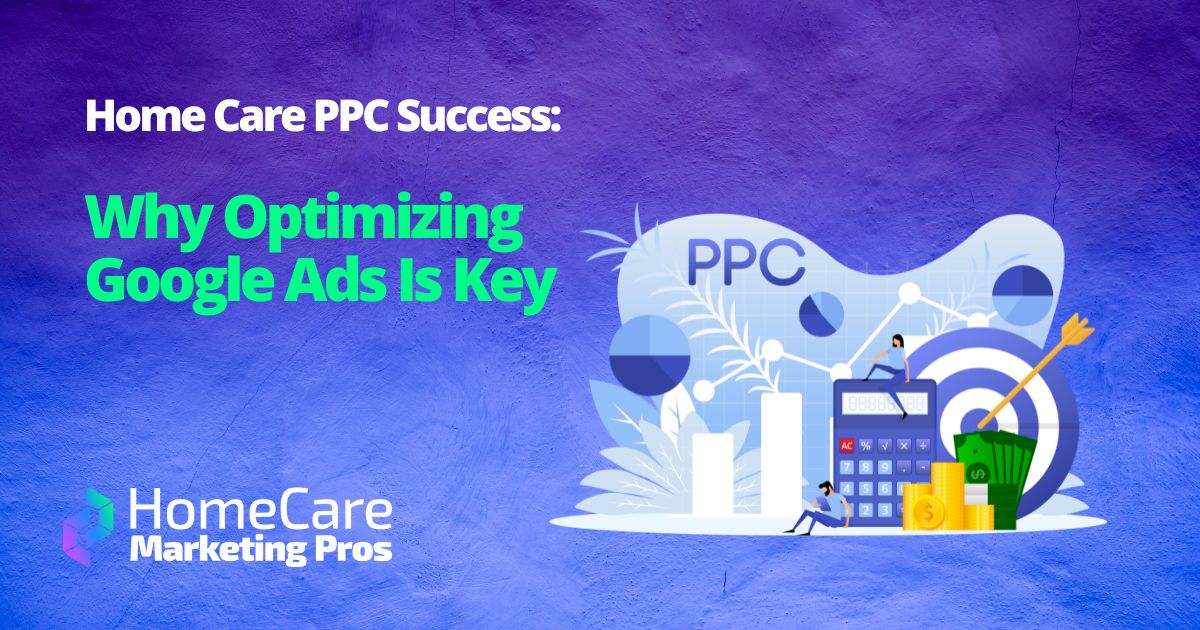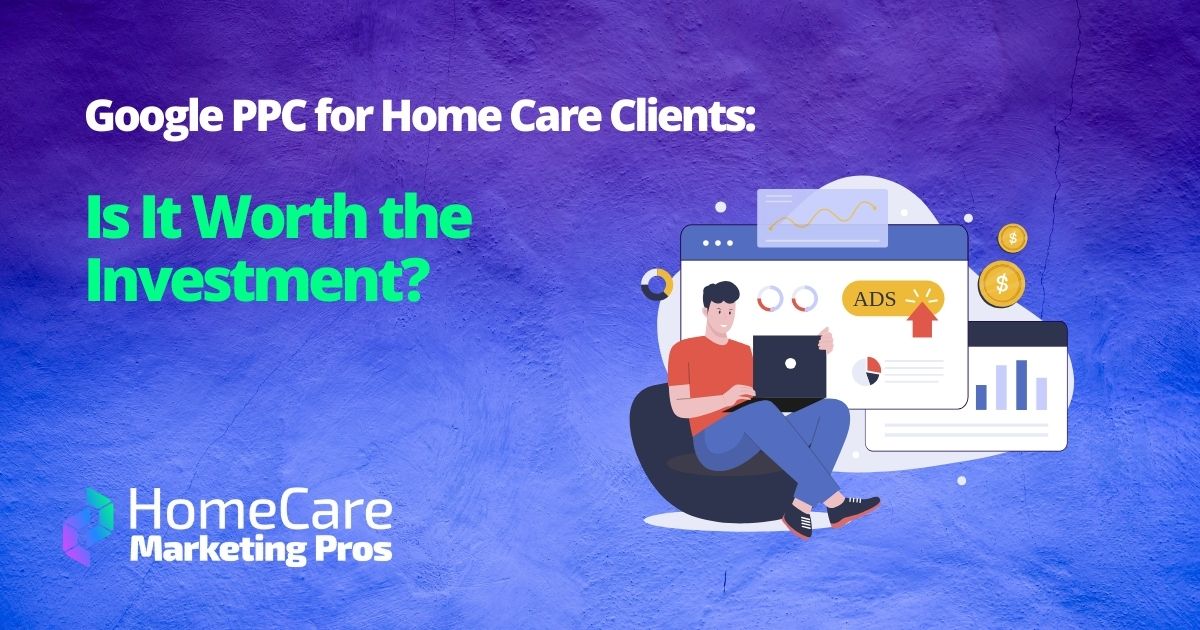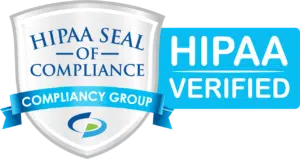SEO vs. PPC: When to Optimize and When to Pay for Traffic for Your Home Care Agency
In this article, we've explored what you can expect to achieve from each of these two acquisition strategies. We’ve also provided some pros and cons of SEO and PPC along with real-life examples to help you decide whether your home health care business is best suited for SEO or PPC — or both.
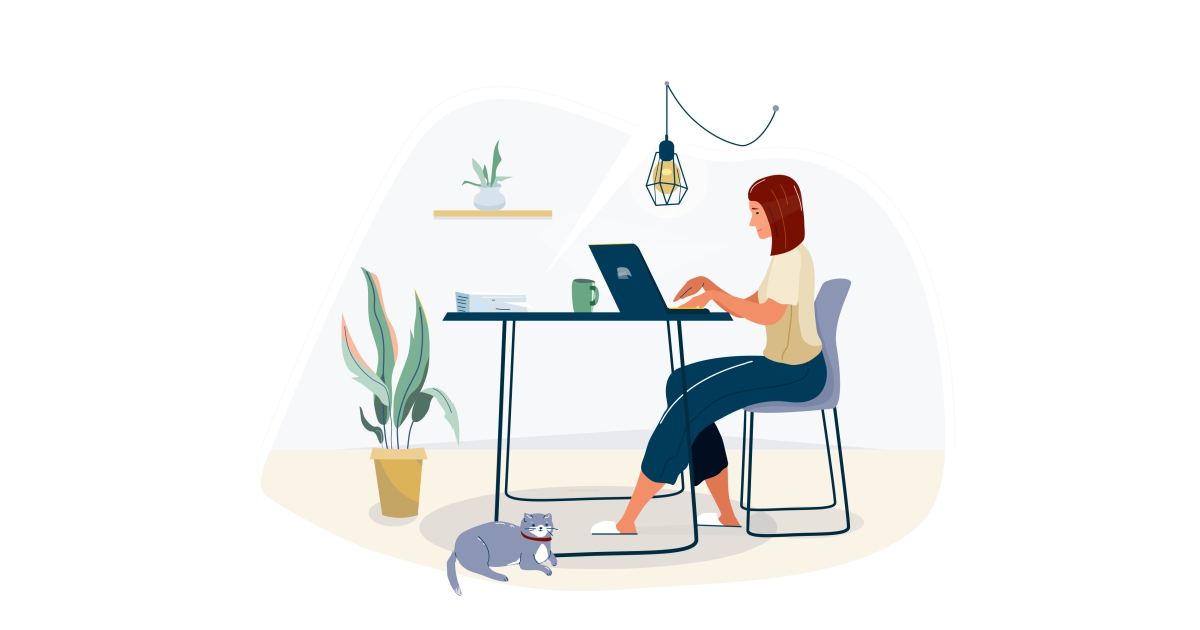
Imagine you’ve just opened a new location, and you're excited to share your home care services with the community. Unfortunately, being brand new to the area and having plenty of competition means you are not exactly sure how to make your presence known online.
You’re not alone. Like you, many home health agencies face a similar problem regarding how to get their services in front of potential clients.
Most of the time, the solution to your problem boils down to choosing between two marketing strategies: search engine optimization (SEO) or pay-per-click (PPC) campaigns.
But which method is suitable for you? Is it better to pursue an organic-first approach and find clients (or find caregivers if that is your need) through search engine rankings, or is it better to invest in an advertisement at the top of a keyword results page?
In this article, we've explored what you can expect to achieve from each of these two acquisition strategies. We’ve also provided some pros and cons of SEO and PPC along with real-life examples to help you decide whether your business is best suited for SEO or PPC — or both.
What is SEO?
Search engine optimization is the process of enhancing your website’s visibility to make it rank well and gain organic traffic from search engines.
Just as you turn to your favorite search engines, such as Google or Bing, to look up a new marketing acronym or where to get good pizza, so do your potential clients. When you invest in SEO, you're increasing the likelihood of your target audience finding you when they make a Google search for keywords related to your service.
For example, here’s Home Care Marketing Pros appearing at the top of Google’s organic results page for the term “home care agency marketing,” thanks to the SEO strategy we have in place.

Semrush data:
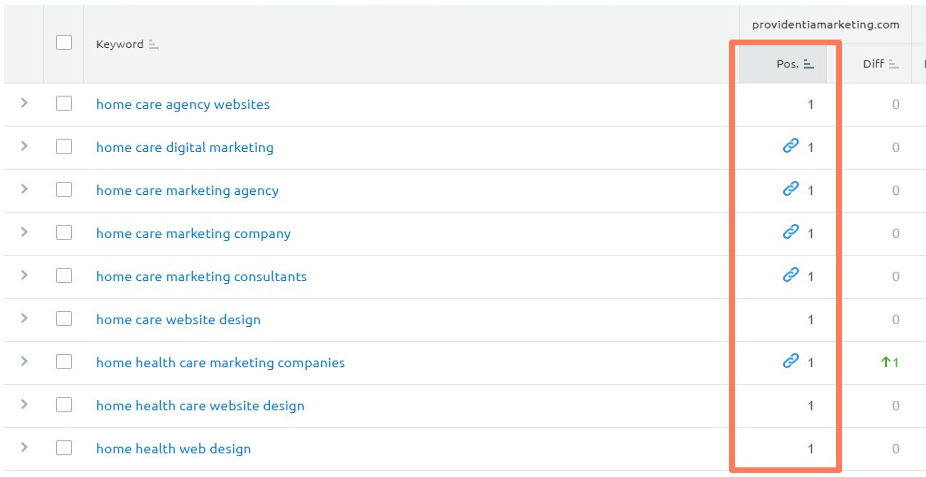
Most SEO strategies center around Google because it holds 92.24% of the search engine market share. As such, you’ll need to learn about Google’s 200 ranking factors, technical SEO, link building, content creation, and so much more if you want to appear higher up on the search engine results page.
Pros of SEO
Here are some advantages of SEO:
1. SEO is cheaper in the long run
Although SEO might cost time and money — to pay freelancers or agencies, and for SEO tools — it’s still cheaper than PPC in the long run.
When you create content that ranks and drives traffic to your website, you no longer have to keep spending money to make your target customers see it. And when these customers decide to click on your link, it comes at zero cost, unlike a PPC campaign where you pay per click.
In the following image, you see that according to Semrush, Home Instead's traffic value is almost $400k per month! Imagine if they had to pay for every click they got.

Organic traffic is also very scalable and cost-effective.
2. You can target different funnel stages with SEO
Not all of your audience is at the same stage of the marketing funnel.
Some are just getting to know your brand at the top of the funnel. And others are already at the bottom of the funnel, ready to get started with home care.
With SEO, you can create different content types (blog posts, guides, case studies, testimonials) that meet each segment of your audience exactly where they are in the marketing funnel.
3. Search traffic is more stable
Once you rank on Google, you can be sure of free traffic to your website or web pages as long as you keep optimizing them.
There’s also no off-and-on switch with SEO, unlike PPC marketing, where your website stops appearing on search results once you stop sending your dollars to Google.
4. Organic listings build brand authority
Appearing consistently on search results for keywords related to your products and services helps build trust and brand authority with your target audience.
It also signifies to Google that you’re an expert at what you do.
Cons of SEO
Here are some reasons why you might not love SEO:
1. Search engine algorithms change
Search engines, especially Google, have changed their algorithm many times over the years. These changes mean that you’ll have to keep a close eye on your marketing strategy and organic results.
2. You’ll need to optimize your website regularly
Your job doesn’t end when you get your website to rank for target keywords. Over time, you’ll have to regularly optimize your content and web pages so that it continues to rank.
Optimization might include refreshing old articles and removing old/expired links.
3. SEO takes time to show results
If your website or domain is new, it’s unlikely that you’ll enjoy immediate results from SEO. The reason is that many factors affect how Google ranks websites.
4. It requires high-level skills and expertise
If you’re not hiring a professional, you’ll need to be an excellent writer and SEO expert to optimize your site for search engines properly.
It’s undoubtedly time-consuming and overwhelming to run a business while taking technical SEO, writing, and link-building classes.
What is PPC?
PPC, or pay-per-click, is a form of search engine marketing (SEM) where an advertiser pays a publisher (such as Google or Facebook) every time someone clicks on the ad. This model allows advertisers to pay only when consumers interact with their ads — meaning you attract people interested in home care and they are ready to talk to someone.
This method is mainly associated with search engines as advertisers bid on search keywords relevant to their target markets. You may have noticed that the top search results are tagged with an "Ad" marker.
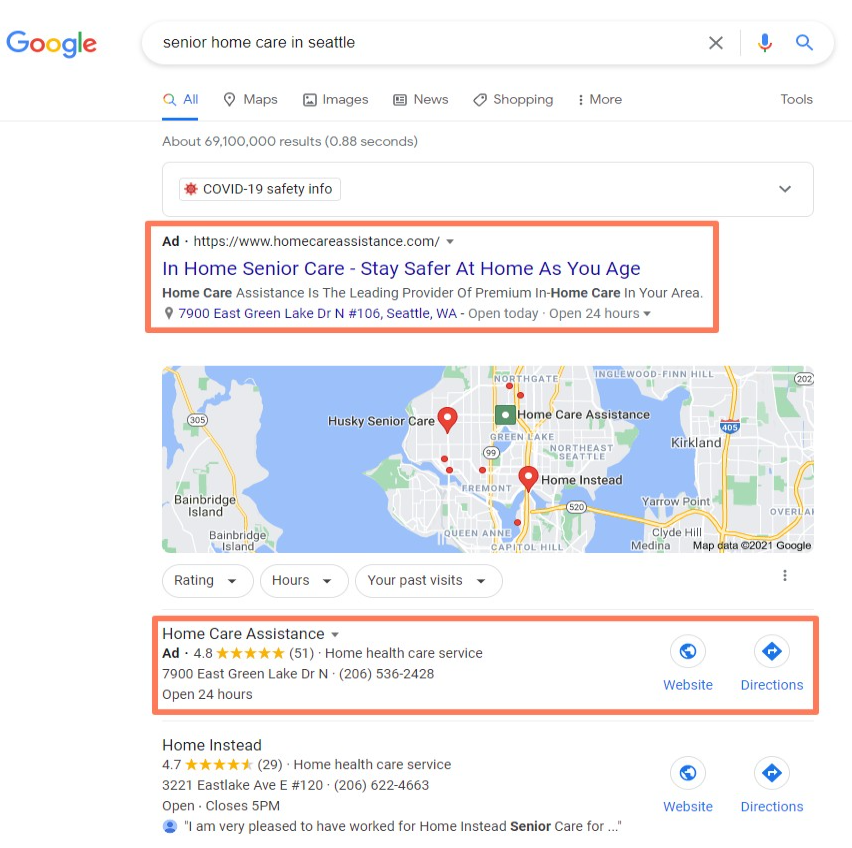
The cost of PPC ads usually depends on your industry and the search volume of the keyword you’re targeting. For home care agencies, the cost relies heavily on the location and the competition for the same space.
PPC advertising can help your business stay competitive in a crowded market and quickly get in front of their target consumers if you don’t have the domain authority to get your site ranking organically on search engines.
Pros of PPC
1. PPC offers quick results
While it can take months to see results from your SEO strategy, it can take a few hours to see results from your PPC campaign.
2. PPC ads appear above organic rankings
When you run a PPC campaign for your target keyword, your website would appear first on the search engine result page. This ranking makes your audience notice you first before scrolling to see other results.
3. PPC allows you to pinpoint your target audience
While setting up a PPC campaign, you get to choose who you want to target with your ads.
Do you want people from a specific geographic area? Or people of a particular age? Marital status? Or interest? If so, then you should use PPC.
4. You can quickly run A/B tests on a PPC ad
With a PPC campaign, you can run two different ads simultaneously to measure the one that converts better.
All you’ll have to do is change some ad elements like the ad copy and allow them to run for a period. Depending on the performance, you can decide to either “kill” the Google ads or continue optimization to improve your results.
Cons of PPC
1. PPC ads are expensive
Without money, you cannot run a PPC campaign.
You have to pay for every link that your audience clicks, meaning once your budget dries up, so does your traffic.
Also, a PPC ad can get even more expensive (as high as $40) when you’re in a competitive industry like legal, insurance, or assisted living.
2. Lower profit margins
While a PPC campaign might bring short-term wins, it’ll usually result in lower profit margins. Because PPC is a “pay to play” system, your client acquisition costs (CAC) would continue to get higher without a significant increase in the prices of your products and services.
3. PPC ads become stale after a while
You have limited control over your paid ad because of the rule set by ad platforms like Google. As such, your copy might have similar wording to your competitors, which makes it easy for your audience to pass over quickly.
SEO vs. PPC
Search engine optimization (SEO) can help your content rank high on search engines, making it more likely that your audience would click and trust your content.
SEO is also more effective for local searches and can grow your online presence for longer. Pay-per-click (PPC), on the other hand, is an acquisition strategy that requires you to spend ad money to get your content in front of an audience when they search for specific keywords online.
SEO vs. PPC: Which is better?
Asking which is better between SEO and PPC is like asking whether it’s better to drive a truck or a motorcycle — it depends.
Towing the boat to the lake? Sure, I’d choose the truck. Joy ride up the coast? Motorcycle, please.
In the same way, different situations exist where SEO is better than PPC and vice versa.
Let’s now look at some of these situations.
Use SEO if...
- Your marketing budget is low.
- You have time on your side and can build steadily.
- You want to build your brand authority.
- You’re looking to maximize your long-term return-on-investment (ROI).
- You want to create content that reaches your audience at different stages of the sales funnel.
Use PPC if...
- You want fast results.
- You are already doing everything else right with your marketing and want to pour gas on the fire.
- You’re promoting a time-sensitive offer, like a job fair or a special service.
- You want to direct your audience to a landing page or an ebook.
Take a look at the chart below, which we often share with our new clients to give them an idea of timing.
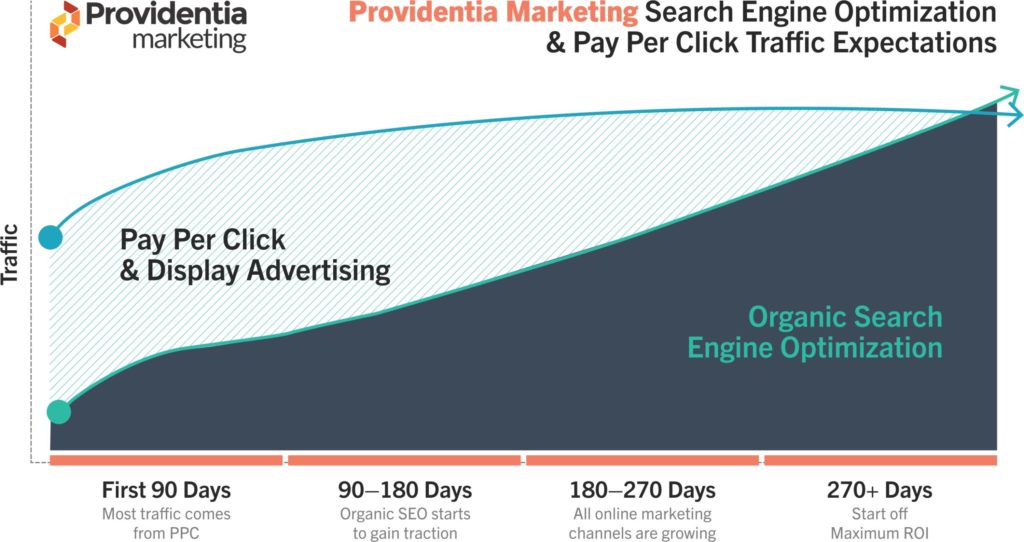
How to Make SEO and PPC Work For You
Instead of choosing between SEO or PPC, why not combine the two strategies and make them work for you?
Here’s how you can get the best of both worlds.
1. Create retargeting ads
Did someone visit your site, probably the services pages or the home page, but they didn't fill out a contact form?
You can easily use a retargeting ad to prompt these visitors, even after they’ve left your site, to come back and take action.
2. Promote website content with social media ads
While you want your content to rank organically, you can give it a quick boost by promoting it on social media.
Not only do these kinds of ads help with content distribution, but they could potentially help you acquire essential backlinks that’d boost your rankings.
Also, it’s going to be a shame not to promote your latest blog post, guide, or case study after spending hours creating it.
3. Collect data from ads to improve your SEO strategy
PPC campaigns grant you access to a lot of data — keyword search volumes, keywords your competitors are bidding for, highest converting calls-to-action, and so on.
Armed with all of this data, you’d be able to create better SEO strategies with less effort.
Final Take Away
Whether you choose to go with SEO or PPC ultimately depends on your business situation. So take your time to evaluate the pro and cons of both SEO and PPC to see which is the right fit for you. And if possible, integrate the two strategies to see even more outstanding results for your business.

